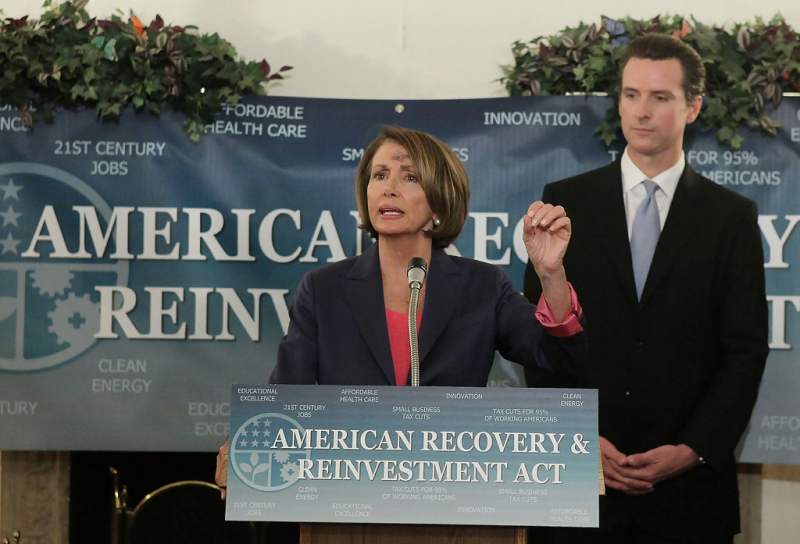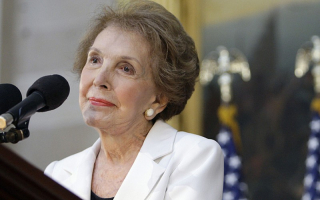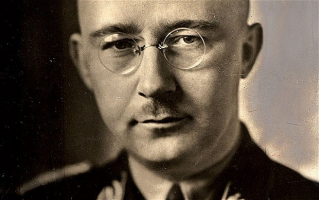Top 10 Interesting Facts about Nancy Pelosi
Nancy Pelosi, as Nancy Patricia D'Alesandro, was born in Baltimore, Maryland, on March 26, 1940. After becoming the first woman to be elected Speaker of the ... read more...House in 2007, Nancy Pelosi is now the 52nd Speaker of the House of Representatives. Pelosi, who is currently serving her third term as Speaker, made history once more in January 2019 when she reclaimed her place as the nation's next president, marking the first time this had happened in more than 60 years. Pelosi is fighting for the people in her role as Speaker by attempting to reduce health care costs, raise worker pay through robust economic growth and the rebuilding of America, and eradicate corruption to make Washington function for all. Here are the ten most interesting facts about Nancy Pelosi you should not miss!
-
The idea that Nancy Pelosi, (D'Alesandro), entered politics later in life is a prevalent one. Pelosi is a lifelong politician, which is one of the most interesting facts about Nancy Pelosi. She was raised in an Italian-American family that was very politically engaged. Political figure and New Deal Democrat Thomas D'Alesandro, Jr., her father, studied political science at Trinity College in Washington, D.C., where he earned a bachelor's degree in 1962. Both Nancy's brother and her father, a well-known Baltimore Democrat, served as mayors of the city. Pelosi got started in politics at a young age. She aided her father's political activities. When John F. Kennedy was inaugurated as president in January 1961, she attended his inauguration speech.
When Nancy D'Alesandro was a college student, she met Paul Francis Pelosi. On September 7, 1963, they were wed at Baltimore's Cathedral of Mary Our Queen. After being married, they relocated to New York before making their way to San Francisco in 1969, where Paul's brother Ronald Pelosi served on the Board of Supervisors for the City and County of San Francisco.
Within six years, they gave birth to five kids. Pelosi was a dedicated volunteer fund-raiser for the Democratic Party of San Francisco. She advanced through the ranks after developing a reputation as a very successful fund-raiser, serving on the Democratic National Committee and as chair of the California Democratic Party (1981–1983) as well as the organizing committee for the 1984 Democratic National Convention in San Francisco (1984).
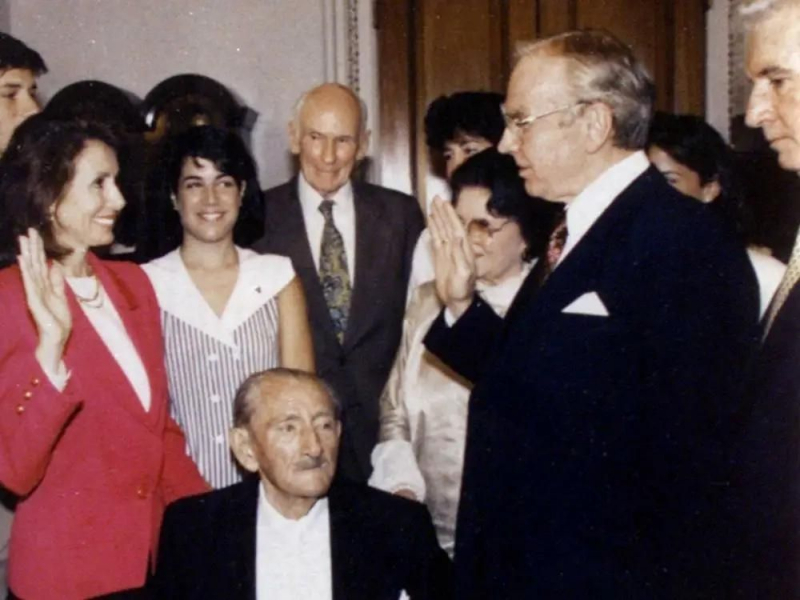
Photo: https://www.businessinsider.com/ 
Photo: https://www.cnbc.com/ -
Pelosi started climbing the Democratic political ladder after relocating to San Francisco and making friends with Phillip Burton, a congressman from the 5th district. Sala Burton, who won a special election in 1983, succeeded her late husband Phillip Burton after his death in 1983. 2 more elections were won by Sala Burton (in 1984 and 1986). Burton opted not to seek reelection in 1988 after being diagnosed with cancer in the latter part of 1986. Pelosi was chosen by her as her chosen replacement, securing for her the backing of the Burtons' contacts. Just one month after taking the oath of office for his second full term, Burton passed away on February 1, 1987. Pelosi won the special election to succeed her, defeating Republican Harriet Ross in a runoff on June 2 and Democratic San Francisco supervisor Harry Britt on April 7, 1987. A week later, Pelosi was inaugurated.
Since she won, San Francisco, California, has been represented in Congress as a safe Democratic district. She represents the 12th congressional district of California, which includes the majority of San Francisco's city and county. Pelosi served as a representative for the 5th district from 1987 to 1993; from 1993 to 2013, she served as a representative for the 8th district after new district lines were set in the wake of the 1990 census.
Republicans, who currently make up barely 13 percent of the district's registered voters, have not made a serious run for the seat since the early 1960s, and Democrats have held the seat since 1949. She was reelected in the 1988 general election and has since been re-elected 16 more times with no significant challengers, winning with an average of 80% of the vote each time.
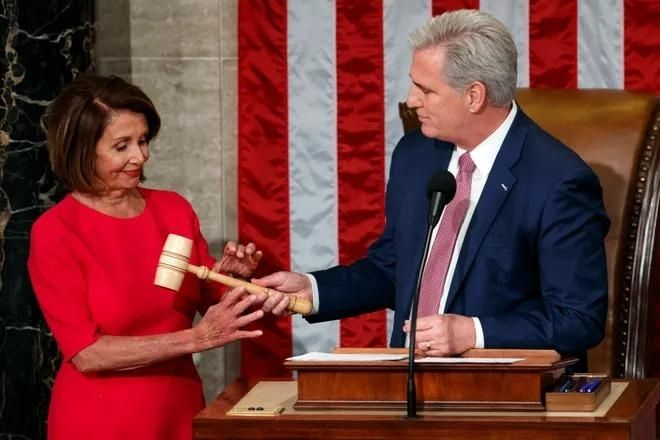
Photo: represented California in the House of Representatives 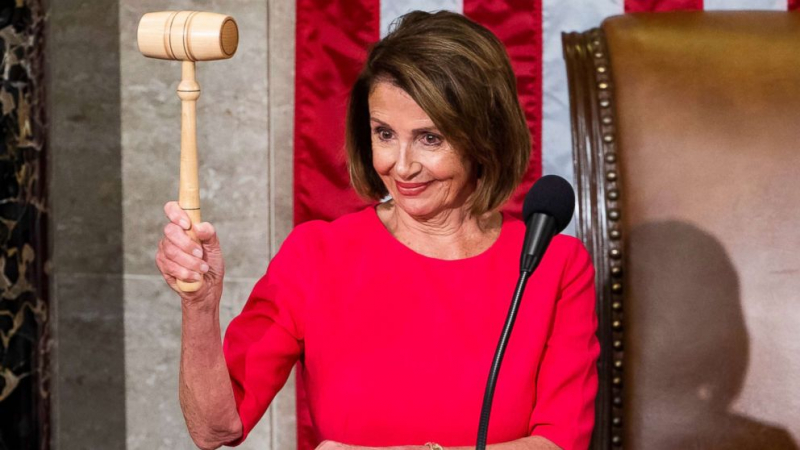
Photo: https://abcnews.go.com/ -
Pelosi established a reputation for being a cunning politician and progressively advanced within the party, eventually taking over as minority whip in 2002. She became the first woman to lead a party in Congress when she gained office in 2003 after being chosen minority leader later that same year. She held the distinction of being the member of Congress who gave the most money to other congressional campaigns in the 2000 and 2002 election cycles.
Pelosi started advocating for unification among the many groups within her party by engaging conservatives and moderates, using what she referred to as her "mother of five" voice. Pelosi persisted in consistently supporting leftist causes including abortion rights and gun control, opposed welfare reform, and abstained from voting in favor of the Iraq War. She once called President George W. Bush an "incompetent leader," thus her criticism of him may be caustic. Her detractors countered that she was out of touch with the majority of the country due to her "left coast," left-wing beliefs.
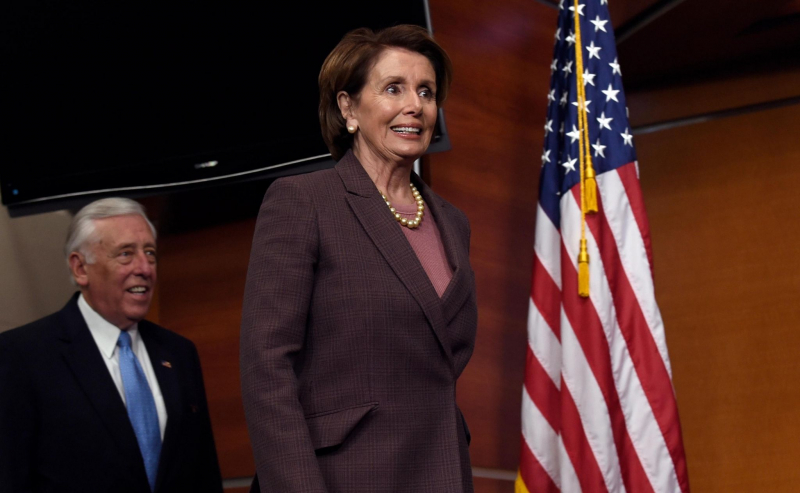
Photo: https://time.com/ 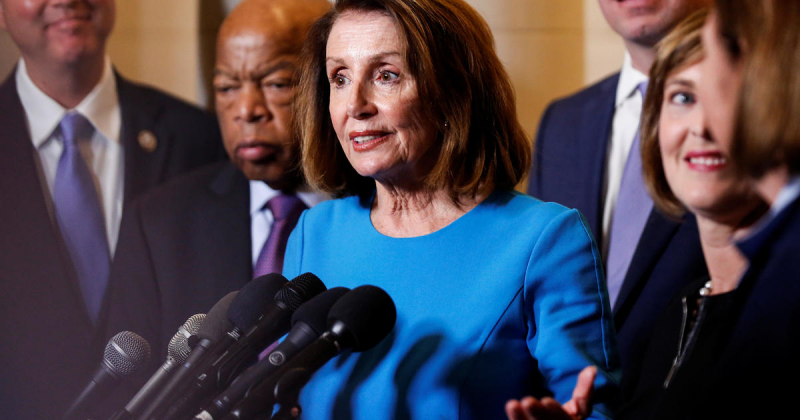
Photo: https://www.cbsnews.com/ -
She was first elected Speaker of the House in 2007 and was re-elected in 2019 after the Democrats took back control of the House for the third time. Pelosi is not only the first female speaker; her position places her second in line behind the President, with the Vice President standing between them. She now holds the title of the most powerful woman in current American politics, which is one of the most interesting facts about Nancy Pelosi. She is also the only Speaker to be reelected after a hiatus in more than 60 years.
Speaker Pelosi has served as the 12th District of California's representative to Congress for 31 years. She has been the House Democratic leader for 16 years and was formerly the party's whip. At a ceremony in Seneca Falls, New York, the cradle of the American women's rights movement, she was honored by being inducted into the National Women's Hall of Fame in 2013.
According to Congressional expert Norman Ornstein, the 111th Congress led by Pelosi was "one of the most productive Congresses in history." Make no mistake: Nancy Pelosi is the most powerful woman in American politics and the most powerful House Speaker since Sam Rayburn a half-century ago, according to the Christian Science Monitor and President Barack Obama, who dubbed Speaker Pelosi "an incredible leader for the American people."
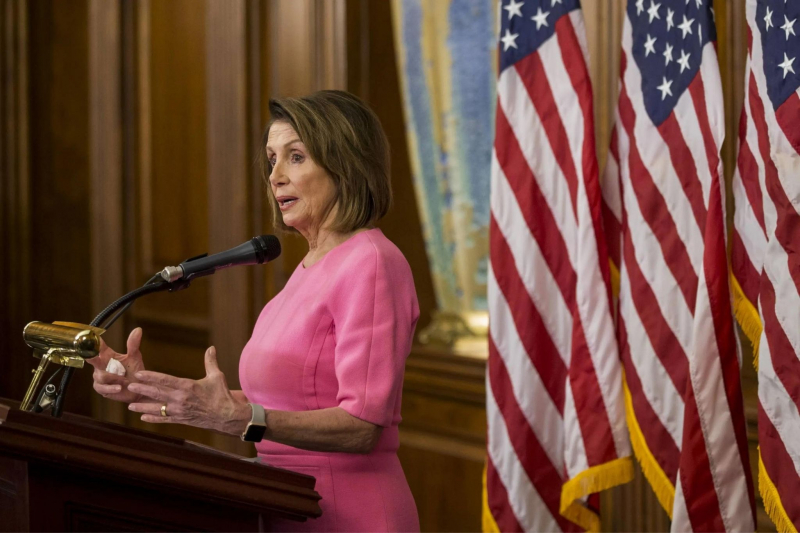
Photo: https://fortune.com/ 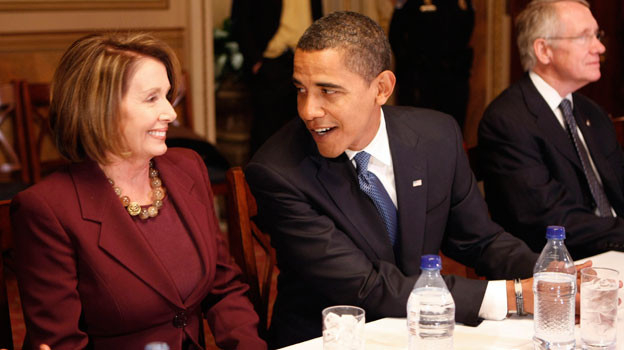
Photo: https://www.politico.com/ -
Pelosi was a prominent backer of many of Democrat Barack Obama's initiatives after he was elected president in 2009. She helped push through his $787 billion stimulus package in February 2009 and was a key player in the fight to achieve health care reform, which was finally passed in March 2010. The Affordable Care Act, which guarantees protections for all Americans with pre-existing medical conditions, eliminates annual and lifetime coverage caps, and provides affordable health coverage for tens of millions more Americans while bringing down long-term healthcare costs, was crafted by Speaker Pelosi. The landmark legislation made health insurance available to nearly 30 million previously uninsured Americans and forbade insurance companies from refusing to cover people with preexisting diseases.
But in the year preceding that, even Democrats believed that the Act was doomed to failure. According to information, the plan wouldn't receive the support needed in Congress to succeed, therefore President Obama was thinking of taking a piecemeal, stepwise approach aimed at improving child care. Pelosi, though, was adamant about passing the entire Act and working toward its future revision. Obama speculated that she was arguably the best Speaker in history due to her perseverance in negotiating a compromise that won enough votes.
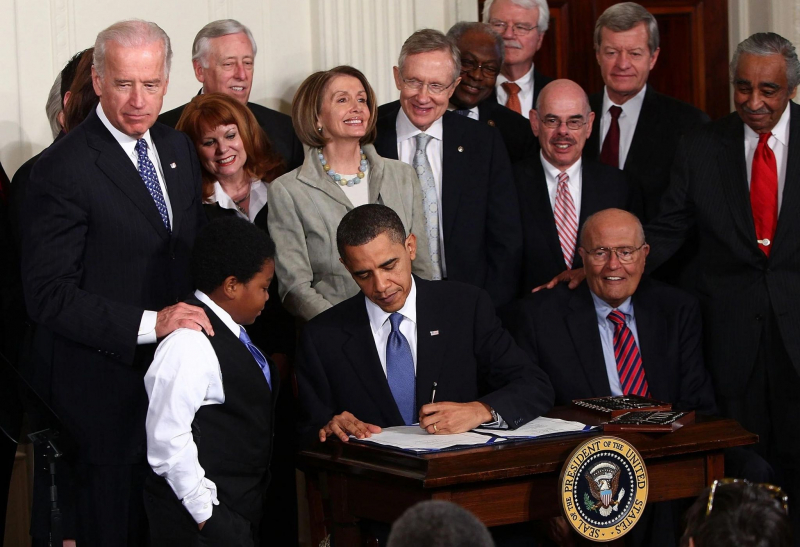
Photo: https://time.com/ 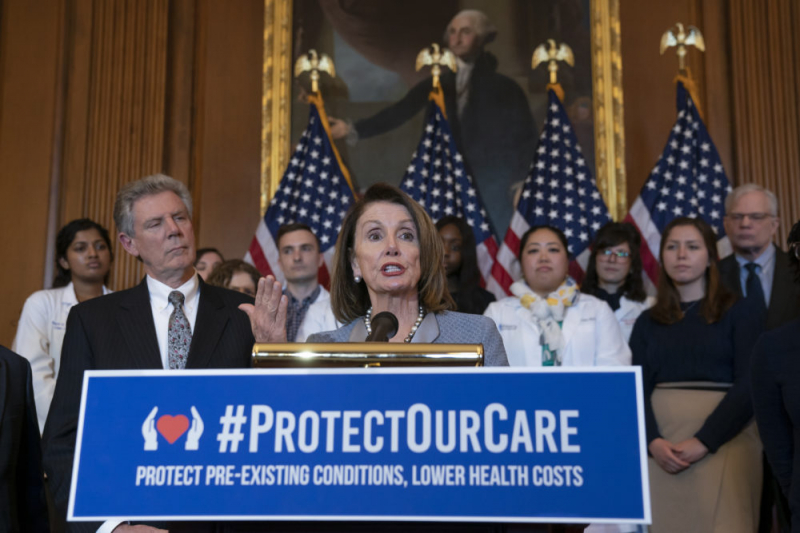
Photo: https://www.wbur.org/ -
She became a focus of Republican criticism and a rallying point for Tea Partiers in the run-up to the 2010 midterm elections, who wanted to use them as a referendum on the Democratic agenda. Pelosi was chosen to lead the minority in the upcoming Congress despite calls for new party leadership. The Democrats experienced a significant comeback in the 2018 midterm elections as they took back control of the House. Pelosi made several concessions in response to calls for leadership changes, including accepting term limits. In January 2019, she was formally chosen as speaker, making history as the first person to hold the position for non-consecutive terms in more than 60 years. Pelosi's political acumen was also on display as she handled a shutdown of the government that had started in late December. The longest government shutdown in American history lasted from December 22, 2018, until January 25, 2019.
One of Trump's top campaign promises, money for a border wall between the United States and Mexico, was in question. In opposition to the president, who pledged to keep the government shut down until he obtained billions for the proposed wall, Pelosi brought her party together. Pelosi declined to allow Trump to deliver the annual State of the Union address in the House chambers while the government was shut down, citing security concerns. Trump failed to acquire the required cash, but in late January he ultimately consented to end the longest closure in history. Pelosi received particular acclaim for how she handled the circumstance.
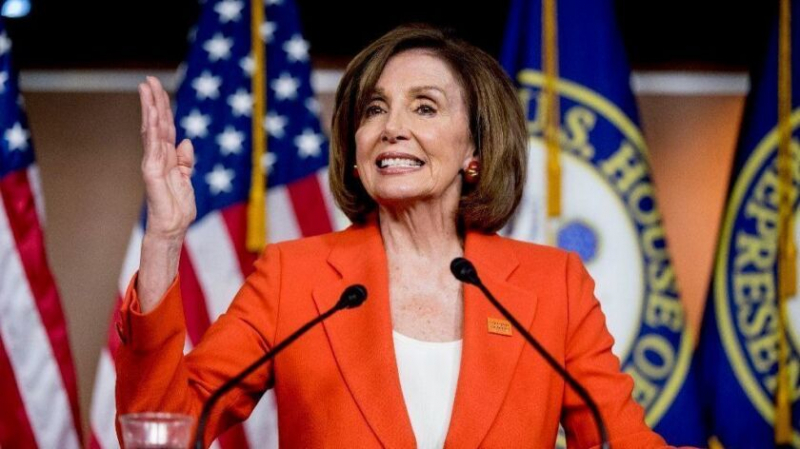
Photo: https://www.latimes.com/ 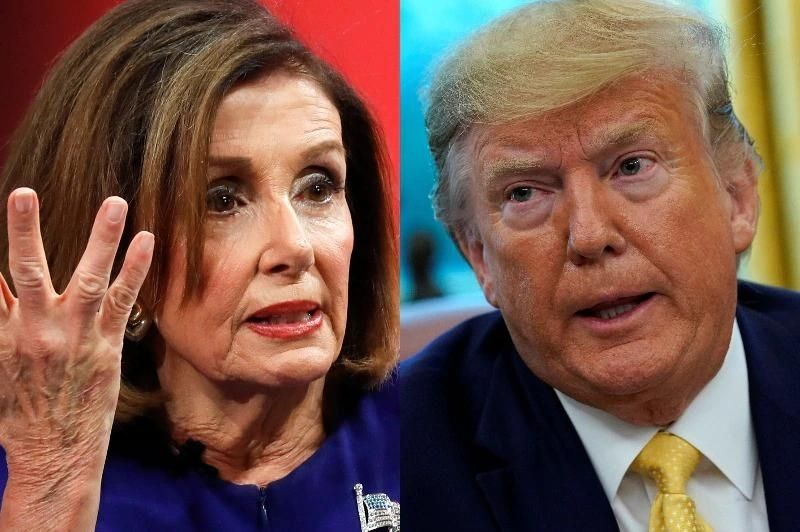
Photo: https://www.abc.net.au/ -
During this period, Pelosi was under pressure from members of her party to begin the process of impeaching Trump. This story was one of the most interesting facts about Nancy Pelosi. Many Democrats believed that some of the conclusions of an investigation into claims of Russian meddling in the 2016 election were sufficient to justify impeaching President Trump. When special counsel Robert Mueller wrapped up his investigation into claims of Russian meddling in the 2016 election, they intensified in March 2019. Although Mueller did not draw any legal conclusions, Trump's detractors thought the discoveries backed the president's impeachment, while the president's supporters thought he had been cleared.
Pelosi was initially hesitant to pursue impeachment, but in September 2019, it became known that a whistle-blower had filed a complaint alleging that Trump had withheld aid to Ukraine to persuade that nation to launch a corruption investigation into a political foe named Joe Biden. This revelation caused Pelosi to change her mind. Later that month, Pelosi formally launched the House's impeachment investigation. Early in December 2019, the investigation came to an end, and a few weeks later, the House voted to impeach the president. Pelosi didn't deliver the articles of impeachment to the Senate to the Senate until January, though. The motion was viewed as an effort to obtain specific terms for the Senate trial, and its outcome was disputed. Trump was cleared by the Senate in February 2020.
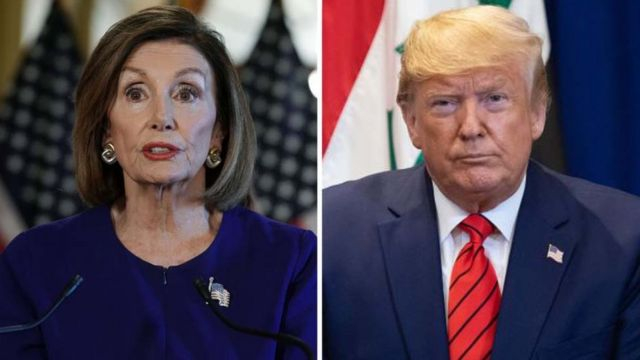
Photo: https://www.bbc.com/ 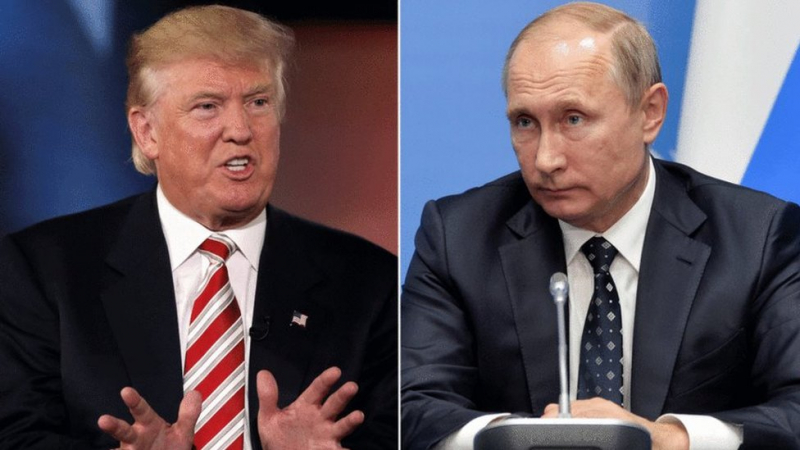
Photo: https://www.bbc.com/ -
The coronavirus was at this time dispersing globally and eventually turning into a pandemic. Businesses and schools started to close in March 2020 as American mortality started to rise, and the economy soon experienced a collapse on par with the Great Depression. The largest stimulus program in American history, a $2 trillion relief package, was passed that month with Pelosi's assistance. She blamed the president for how the pandemic had been handled by the government as it spread throughout the nation, even going so far as to refer to it as the "Trump virus."
Democratic presidential candidate Biden defeated Trump in the 2020 election, while the party kept its narrow House majority. In 2021, Pelosi was chosen to serve as a speaker for another term. Trump disputed the results of the presidential election at this time, even though there was no proof to back up his claims. On January 6, 2021, as Congress was approving Biden's triumph, his supporters invaded the Capitol. Trump was called out for allegedly inciting the attack, and Pelosi called for his impeachment. To do that, she orchestrated the adoption of a House resolution that requested Vice President Mike Pence will use the 25th Amendment. Trump was accused by Pelosi of "incitement of insurrection" after she initiated impeachment procedures after he refused. A week before Trump's term was set to expire, on January 13, 2021, the House decided to remove him from office. The Senate later exonerated him, though.
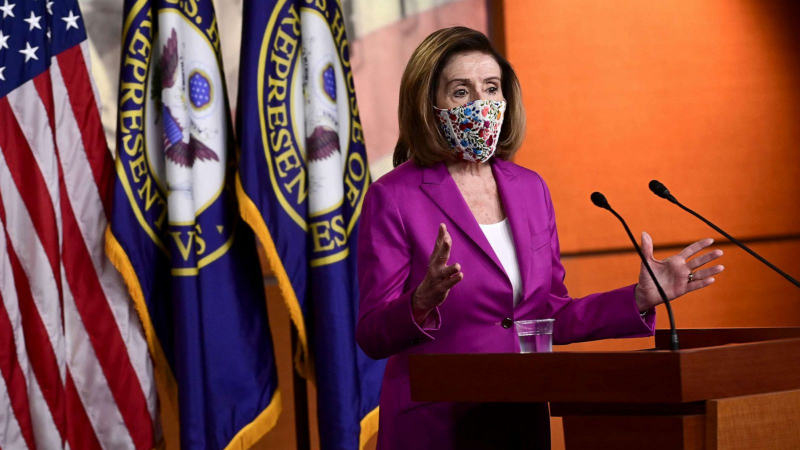
Photo: https://abcnews.go.com/ 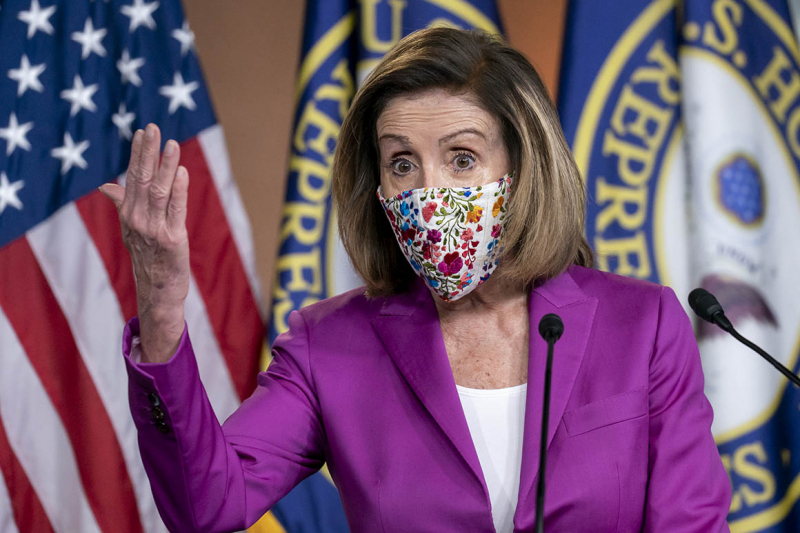
Photo: https://www.politico.com/ -
LGBT rights have long been supported by Pelosi. She opposed the Defense of Marriage Act in 1996, and in 2004 and 2006, she opposed the Federal Marriage Amendment, which would have amended the United States Constitution to define marriage as being between one man and one woman on a federal level, superseding the individual rights of states to legalize same-sex unions. Pelosi issued a statement praising the "historic judgment" made by the California Supreme Court in 2008, which overturned the state's prohibition on same-sex unions. She also subtly expressed her opposition to Proposition 8, a state election measure that was approved in 2008 and which established the legal definition of marriage in California as a union between one man and one woman.
It also puts her at odds with Catholic theology, which defines marriage as a relationship between one man and one woman, according to Pelosi's 2012 statement. Pelosi said her position on LGBT rights, such as same-sex marriage, arises from and reflects her Catholic religion.
Pelosi is in favor of the Equality Act, which would make it illegal to discriminate based on gender identity and sexual orientation by amending the Civil Rights Act of 1964. She advocated for the bill in Congress in 2019 and called for an end to discrimination against LGBT people. Pelosi also opposes Trump's ban on transgender service members.
The Don't Ask, Don't Tell Act, which forbade openly serving LGBT individuals in the military, should be repealed, in her opinion. She also backed the James Byrd Jr. and Matthew Shepard Hate Crimes Prevention Act. She frequently makes an appearance at LGBT gatherings, and she has even made a guest appearance on Ru Paul's Drag Race.
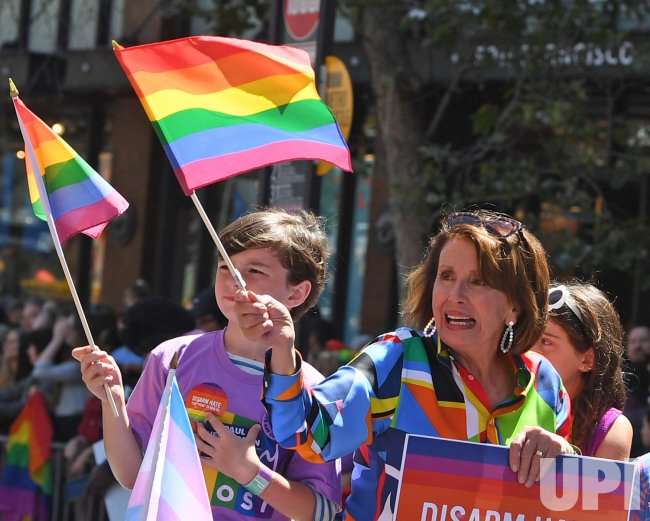
Photo: https://www.upi.com/ 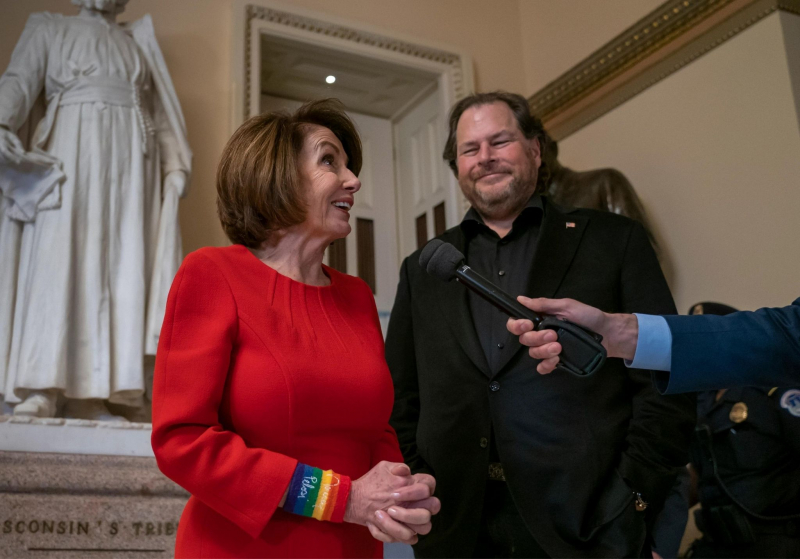
Photo: https://www.usatoday.com/ -
Speaker Pelosi oversaw the House's approval of the American Recovery and Reinvestment Act, which was designed to create and save millions of American jobs, aid American families, and give a tax break to 95% of working Americans, in early 2009 in collaboration with President Obama. Pelosi continues to emphasize the need to generate employment in the United States and stop them from being sent abroad with the help of the House Democratic Caucus.
Speaker Pelosi also led the 111th Congress in passing the Student Aid and Fiscal Responsibility Act, which broadens educational opportunities and overhauls the financial aid system to save billions of taxpayer dollars, as well as tough Wall Street reforms to control big banks and safeguard consumers. The Lilly Ledbetter Fair Pay Act, which restores access to our legal system for women and all workers to fight pay discrimination, legislation to provide health care for 11 million American children, national service legislation, and hate crimes legislation were also significant pieces of legislation that were signed into law.
Under Speaker Pelosi, the House approved the strictest ethics reform legislation in the history of Congress, including the establishment of an independent ethics panel. This law also strengthened accountability and openness in House operations, including improvements to earmarks. As House Speaker, Pelosi spearheaded the effort to enact the DISCLOSE Act, which assures more disclosure and prevents corporate meddling in American democracy. She is still working to pass this legislation.
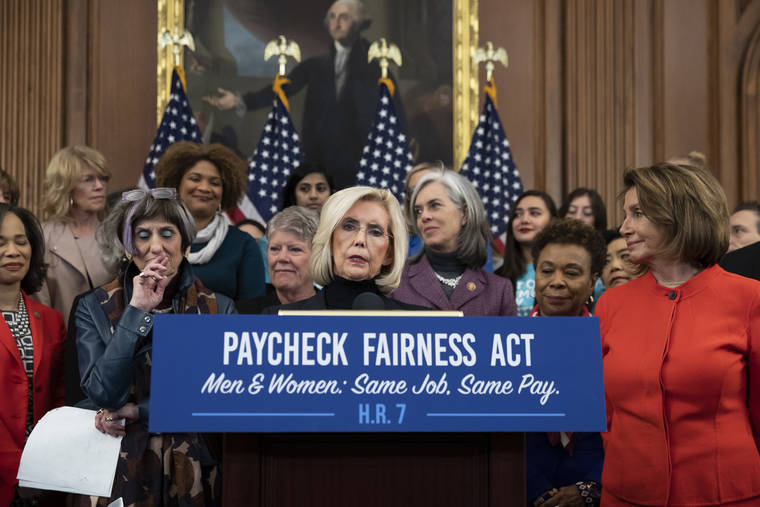
Photo: https://www.staradvertiser.com/ 